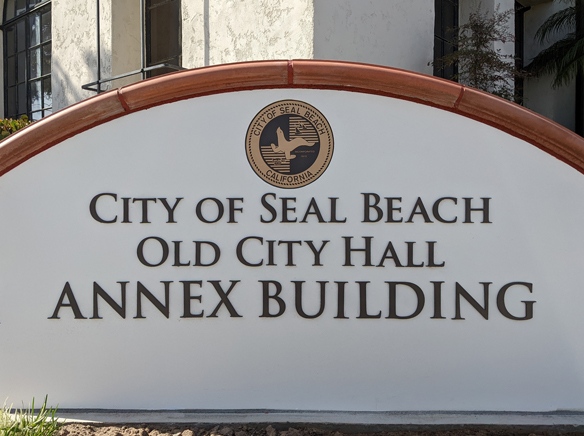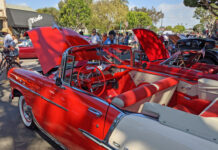AIM Sport Group recently requested a change to their current conditional use permit so they can operate a restaurant at the 1709 Apollo Court location with a “duplicate” small beer manufacturing alcohol license instead of the current beer-and-wine license. Note: no beer will actually be manufactured at the location.
Apparently the “new” license, like the old one, will only allow consumption of beer and wine in the restaurant area.
The Planning Commission voted 4 to 0 to approve the request. District Three Commissioner Michael Thomas had an excused absence from the meeting.
The applicant explained why the proposed restaurant needed to change alcohol licenses. Applicant Fabio Manda, representing AIM Sport Group, told the commission that the business cannot legally have both the Type 41 (beer and wine) license and a Type 23 (beer manufacturing) linces.
Background
AIM Sport Group plans to have a restaurant inside the existing sports facility.
“The restaurant/café area is proposed to occupy a space within the facility approximately 2,700 square feet in area and would provide a limited menu of items such as sandwiches, salads and prepackaged snacks in addition to offering refreshments, smoothies, and alcoholic beverages,” according to the staff report by Assistant Planner Marco Cuevas Jr., and Community Development Director Alexa Smittle.
“The alcoholic beverages sold in the restaurant/café area would only be allowed to be consumed within the café and not be allowed outside of this area. The restaurant/café area is intended for only use by patrons and for guests/spectators during practice and tournament events,” Cuevas and Smittle wrote.
The alcohol license originally approved in the conditional use permit was a Type 41 License. “A Type 41 alcohol license is intended for restaurants and authorizes the sale of beer and wine for consumption on or off the premises where sold. Distilled spirits may not be on the premises (except brandy, rum, or liqueurs for use solely for cooking purposes),” Cuevas and Smittle wrote.
The applicant wanted to put in a Type 23 alcohol license in its place.
“A Type 23 alcohol license is classified as a small beer manufacturer license (Less than 60,000 barrels per year). The privileges and limitations for this type of license are the same as for other beer manufacturers,” Cuevas and Smittle wrote.
“The most common users of this license are operators of micro-breweries and brewpubs. However, the distinction with a Type 23 license is that it allows the operator to one “master” license and up to six of ‘duplicate’ licenses. The master license is designated for a singular location that intends to manufacture alcoholic beverages. A duplicate license is not allowed to manufacture but is allowed to operate as a bona fide eating establishment and would have all the privileges of the Type 41 except for selling other manufacturers’ beer and wine,” Cuevas and Smittle wrote.
“The applicant has indicated the owner currently holds a Type 23 license for a separate location and is requesting to change the previously approved Type 41 license into a duplicate Type 23 license. It is important to note that while a Type 23 “duplicate” license allows the operator to function as a restaurant, it does not grant the operator to manufacture/brew alcohol on the premises at the subject location. The applicant has clearly indicated they are seeking a duplicate license for this location to function as an eating establishment and are not looking to manufacture alcoholic beverages,” Cuevas and Smittle wrote.
The proposed hours for the business would be “12 PM to 10 PM Monday through Friday, and 7 AM to 12 AM Saturday and Sunday,” Cuevas and Smittle wrote.
“The proposed alcohol service hours will be 5 PM to 10 PM Monday through Friday, and 12 PM to 12 AM Saturday and Sunday,” according to the report.
“The proposed recreational facility hours of operation shall be 12 PM to 10 PM Monday through Friday, and 7 AM to 12 AM Saturday and Sunday,” according to Cuevas and Smittle.
The previous CUP was approved in November 2021.
“Lastly, the Seal Beach Police Department has recommended (1) the applicant provide uniformed security guard service during hours of alcohol service to ensure consumption is restricted within the designated restaurant/café area only, (2) that the applicant completes a Crime Prevention through Environmental Design program through the Police Department, and (3) that adequate exterior lighting be provided to promote a safe environment for patrons coming from and going to the location’s parking lot,” Cuevas and Smittle wrote.
“The Seal Beach Police Department also recommends AIM staff routinely patrol the parking lot to discourage groups from loitering, and monitor parking to ensure fire lanes and utility company facilities are maintained clear and unobstructed at all times,” Cuevas and Smittle wrote.












